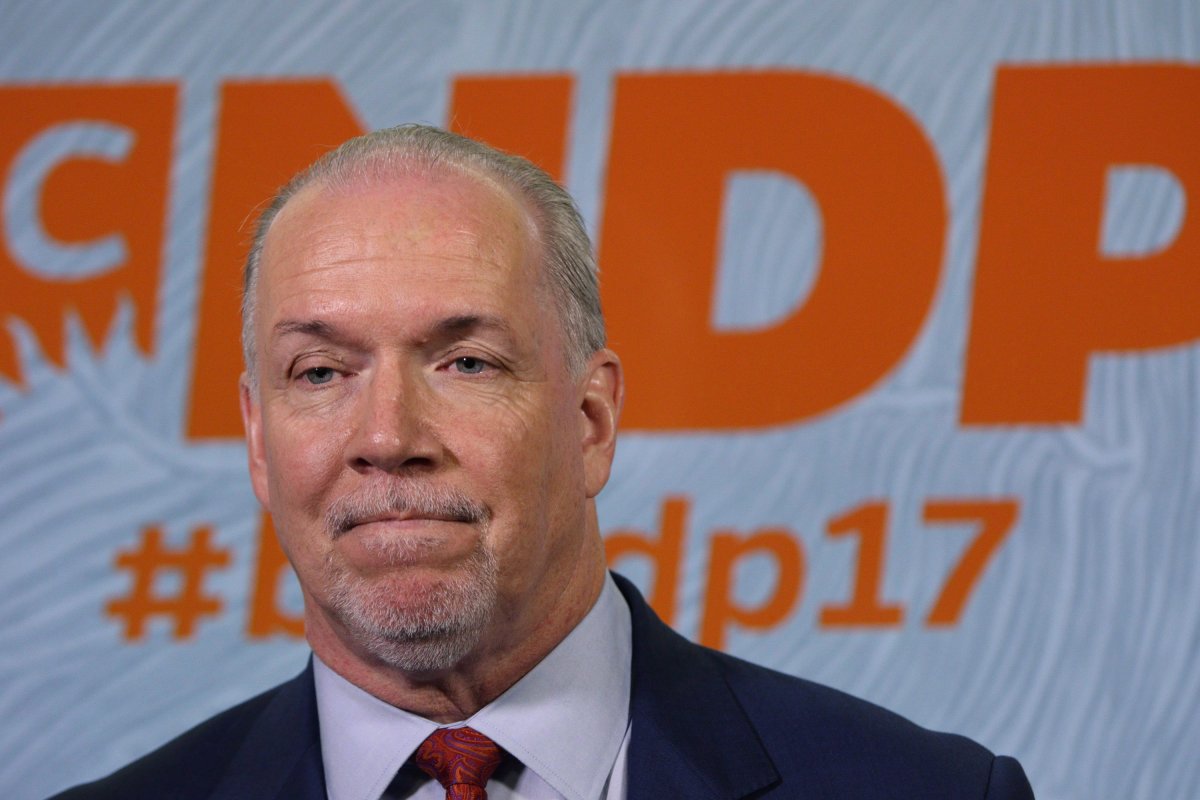As someone with apparent designs on usurping federal authority on pipelines, and managing to spark a trade war with his neighbor in the process, the word “prudent” wouldn’t seem to apply to B.C. Premier John Horgan at the moment.

However, lost amid the kerfuffle over the Trans Mountain pipeline, was an announcement from the B.C. premier on minimum wage that stands in contrast to the more rash and reckless approach we’ve seen from some of his fellow premiers.
WATCH BELOW: B.C. takes first steps to raise mimimum wage to $15.20

B.C. is very much on the $15 an hour bandwagon, but its dash to this arbitrary target will be a slightly less mad one than we’re seeing in Alberta and Ontario. Much to the chagrin of labour groups in B.C., the more cautious timetable laid out by Horgan envisions June 2021 as the arrival of a $15 an hour minimum wage.
Conversely, Alberta will be at $15 an hour by this fall and Ontario will reach the same level as of Jan. 1, 2019. In fact, Ontario’s embraced probably the most aggressive timetable: the minimum wage there jumped to $14 from $11.60 an hour last month, an increase of over 20 per cent.
It’s unclear what, exactly, is guiding B.C.’s more modest approach, but it’s become abundantly clear that proponents of a $15 an hour minimum wage have no interest in any dissenting voices or evidence. Unfortunately for this ideological crusade, however, there’s now a considerable and compelling body of evidence indicating that we may be doing more harm than good.
As Ontario ushered in its steep increase in the minimum wage last month, thousands of part-time jobs vanished. According to StatsCan, “employment in Ontario declined by 51,000 in January, entirely due to losses in part-time work.” As it pertains to young people, StatsCan recorded a drop nationally of 22,000 jobs for those aged 15 to 24, with some modest full-time gains being more than offset by part-time losses.
Again, there may be other factors behind this decline, but it would take a fair amount of hubris to declare with certainty that the minimum wage increase had no impact at all.
But if we are indeed now seeing job losses that are at least partially attributable to minimum wage increases, then we can’t say we weren’t warned.
Most recently, it was the Conference Board of Canada, which warned of a potential loss of 42,000 jobs in Ontario by the end of next year. Before that, it was TD Bank warning that Ontario could lose 90,000 by 2020 as a result of the minimum wage increase. And before that, it was the CD Howe Institute warning that Alberta’s minimum wage increase could lead to a loss of 25,000 jobs.
Is it possible that all of these forecasts are completely and totally wrong? Perhaps. That seems like quite a gamble to take, especially considering that those most impacted by potential negative consequences are the very people we’re ostensibly trying to help through this approach. Other studies done in Canada on the impact of minimum wage increases suggest that we should not ignore the warnings.
When it comes to addressing poverty, minimum wage is a rather ineffective tool to begin with and if there’s also a chance that those same workers could find reduced job opportunities, it’s all the more reason to go slow. Research done in Seattle found that a big jump in the minimum wage there led to job losses and a drop in earnings for minimum wage earners. Sounds like the sort of thing we’d want to avoid.
So why should we fear going slow? If the evidence tells us that moderate minimum wage increases at a more moderate pace can negate many of the potential negative consquences, then it seems like the responsible thing to do.
Rob Breakenridge is host of “Afternoons with Rob Breakenridge” on Global News Radio 770 Calgary and a commentator for Global News.




Comments